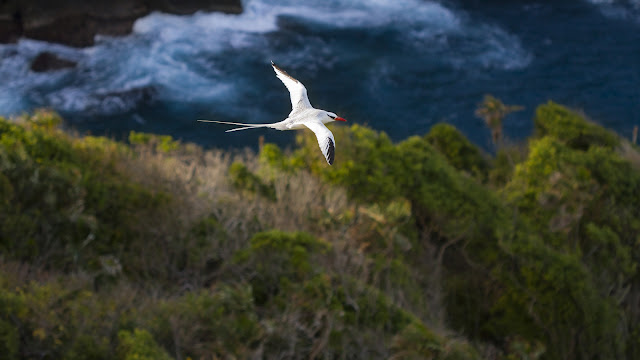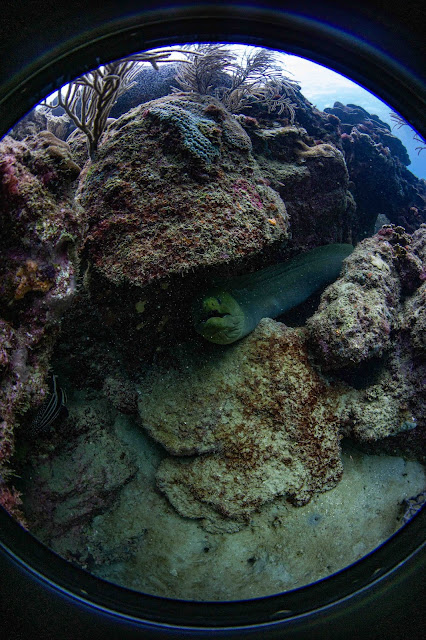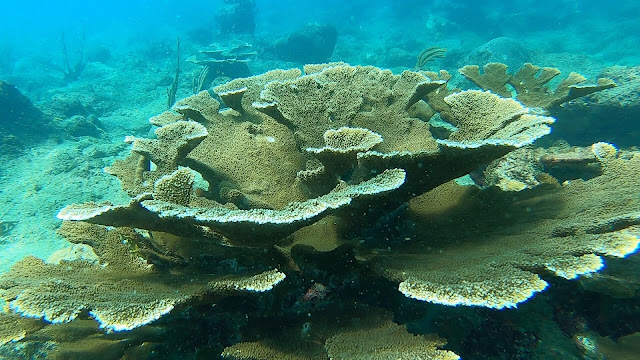The latest on Climate Change from the IPCC
Dr Anjani Ganase reviews the latest reports on climate change from the world’s scientists. They indicate that small island states must take care of the land (agro-forestry) and manage marine resources… with urgency. (First published in the Newsday TT on March 10, 2022)
Global research has concluded that climate change continues to adversely impact most natural and human systems around the world, including many ecological services, such as food and water supply, pollination, clean air, tourism, health, clean water, coastal protection, and climate regulation. For humans, water and food production, health and wellbeing, have all diminished. About 3.3 to 3.6 billion people (more than one-third of the world population) live in hotspots vulnerable to high impacts of climate change. Many of these areas already have social and environmental ills, such as failing governance and poverty. Central and South America, West and East Central Africa, South Asia, and small island states are among the most vulnerable regions. The threat of climate change is compounded by the existing vulnerability to non-climate related issues such as inequity. Continued future risks of heat stress, water scarcity, food insecurity and flood combine with unsustainable resource use and accelerate habitat degradation and inequity.
The implementation of the Man and
the Biosphere management plan will be crucial for building Tobago’s resilience
to climate change. Photo by Anjani Ganase
Who is saying this?
The Intergovernmental Panel for Climate Change (IPCC) released the latest report on the impacts of climate change, adaptation, and vulnerability (Working Group II, Sixth Assessment Report). This report follows Working Group I on Climate Change (Physical Science basis) released last year which identified how the physical changes in the climate have impacted the natural and human systems. Given the current rate of emissions, the Physical Science basis highlights what the projected emissions mean for the ecosystems in the future. Assessment reports are produced on an eight-year cycle with special reports in between. The reports compile the latest science conducted around the world to generate comprehensive global and regional consensus on the observed effects of climate change and the expected trends. It is the result of collaboration by 675 contributing authors from 67 countries compiling more then 34,000 scientific papers. The report is reviewed by independent scientists, governments, organizations, and individuals with over 62,000 reviewed comments considered for the final report.
Here are some of the key points from the report:
Biodiversity
Significant biodiversity loss and extinction of species are observed in all ecosystems worldwide. Mass mortality of plant and animal species in terrestrial and marine realms is occurring because of extreme events, such as wildfires, cyclones and heat waves. Such degradations impact on the ecological services that affect livelihoods and alter cultures. There is a global shift of species poleward (50 % of the species observed), as well as to higher elevations on land because of warming conditions. The seasonal timing of reproductive cycles is also shifting. Species loss is expected to be highest in habitats that live close to their environmental temperature thresholds, such as in the tropics and at the poles. Sensitive ecosystems at risk include alpine forests, coral reefs, kelp forests and sea ice ecosystems that already exhibit high vulnerability with only a 1.2 C increase. Species loss is exacerbated by growing pressures of non-climate related activities, such as urbanization, unsustainable resource use, pollution, and habitat fragmentation. Future projections see increased rates of biodiversity loss, especially as heat waves are expected to be more intense and frequent. Degradation of natural ecosystems and loss of species directly impact human systems, such as agriculture, tourism, health and cultural activities.
Small-island states
Small island nations are among the regions most vulnerable to climate change because of low elevations, limited land space with most of the population living along the coast, and high conflict between urban development and biodiversity conservation. Island nations have experienced more extreme storm events, shifting rain patterns, surges and sea-level rise. Tropical islands also experience coral bleaching events and invasive species and diseases because of warming conditions. Degradation of natural terrestrial and marine ecosystems because of non-climate related problems, including poor governance and lack of finance, will increase vulnerability. Many livelihoods that depend on natural systems and environment, such as agriculture and the tourism, will suffer as a result. Islands also suffer biodiversity loss, especially the endemic species which can be completely lost by 2100.
For the Caribbean, a one-degree rise could result in a 60% increase in the Caribbean population being exposed to extreme water shortages between 2043 – 2071. Water shortages will also impact agriculture and livestock production. Many cities on small islands are coastal and have already experienced coastal flooding because of heavier rainfall events and storm surge. Over time, climate related migration inland or emigration from low lying coastal communities are expected to rise, adding to the ecological and social pressures. Many Caribbean islands have suffered physical loss and mental trauma as a result of hurricanes; recurring damage to infrastructure because of flooding and coastal erosion are expected to limit the accessibility of healthcare services. Urgent investment in capacity building and adaptation is needed. Better governance and legal reforms are needed to drive these investments.
Adaptation is slow in low-income nations because of poor governance and financial insecurity. A focus on green infrastructure, land use and planning, and sustainable water and food production are needed for climate mitigation. These are major issues in Trinidad and Tobago. City transformations must include nature-based engineering to reduce heat, waste and improve accessibility to health services and coastal protection. Forest-based adaptations (forest management, reforestation, conservation) are the most feasible strategies with the biggest likelihood of success and contribution to sustainable development goals. Fisheries management and aquaculture might be a lot harder to implement but will also have significant positive impact in building resilience. Both must be considered for island nations. Agroforestry, biodiversity management and ecosystem connectivity are essential strategies. We must be aware of our place in nature.
Reduce and re-use
Above all, we must reduce excess consumption of resources and accelerate towards sustainable development. We are at a crossroads. We may have limited control over our immediate future but the decisions and actions we make today will affect our mid (2050) to long-term (2100) future, especially if we exceed 1.5 C by 2030.
Reference:
IPCC, 2022: Summary for Policymakers [H.-O. Pörtner, D.C. Roberts, E.S. Poloczanska, K. Mintenbeck, M. Tignor, A. Alegría, M. Craig, S. Langsdorf, S. Löschke, V. Möller, A. Okem (eds.)]. In: Climate Change 2022: Impacts, Adaptation, and Vulnerability. Contribution of Working Group II to the Sixth Assessment Report of the Intergovernmental Panel on Climate Change [H.-O. Pörtner, D.C. Roberts, M. Tignor, E.S. Poloczanska, K. Mintenbeck, A. Alegría, M. Craig, S. Langsdorf, S. Löschke, V. Möller, A. Okem, B. Rama (eds.)]. Cambridge University Press. In Press.
Link to the report: https://www.ipcc.ch/report/sixth-assessment-report-working-group-ii/



